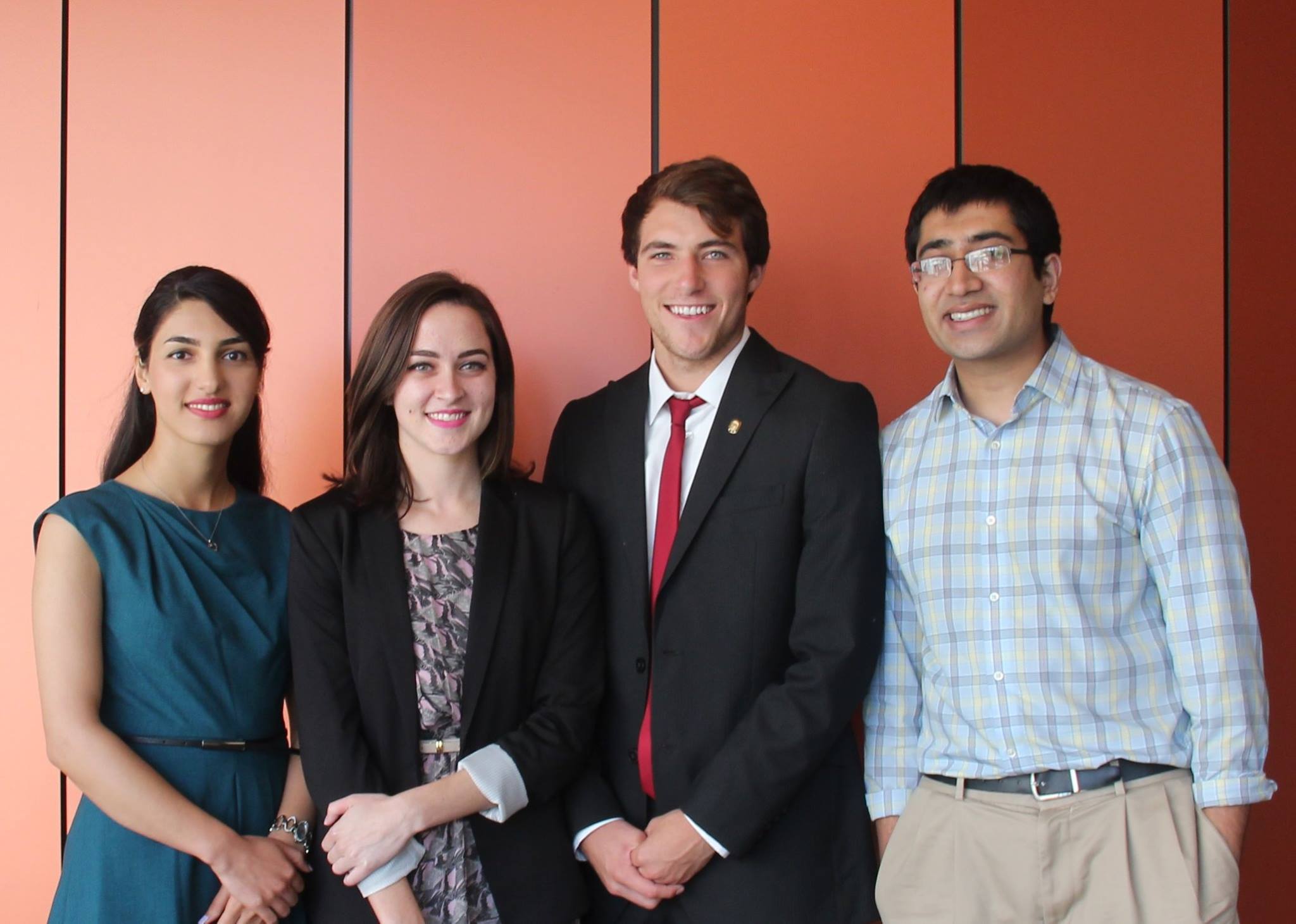Summer Institute on Sustainability and Energy 2015 Program

September 28, 2015 | posted by The Institute

"The vision for the Summer Institute on Sustainability and Energy is to integrate basic energy sciences research and innovative energy technologies into society through informed individuals who can make educated decisions on energy at the personal and civic levels, and in energy related fields like science, technology, economics, behavior, policy, planning, architecture and entrepreneurship."The program was a two-week workshop consisting of lectures and panel discussions, collaborative research projects and mentoring, site visits and networking events. The participants were selected from 25 different universities with 30 different backgrounds and majors. The total 35 participants were divided to 8 different groups to work on an assigned group project with a theme of “Digital Manufacturing”.
What was the competition?
To design what a manufacturing revolution might look like for the city of Chicago and how it would make urban areas smarter, energy efficient, economically friendly, and a sustainable place to live.
How much time did you have to prepare to compete?
The time was very limited to after lectures (mostly evenings) and weekends. The project was challenging, and it took lots of time to complete all the aspects of it.
Who did you partner with?
Argonne national Laboratory, Clean Energy Trust, Institute for sustainability and Energy at Northwestern (ISEN), Institute of Environmental Sustainability (IES), Wanger Institute for Sustainable Energy Research (WISER), and Energy Initiative.
What was your team's design or idea?
Improving building energy efficiency in Chicago is an important step towards the sustainability of the city. Our research focused on connecting the energy utility's smart meter data collection directly to the building facilities managers and owners so that energy consumers can improve their efficiency and cost savings in real time with a mobile and web-based app. This would overall reduce Chicago's reliance on energy, prevent peak time blackouts, and reduce the carbon dioxide emissions, improving air quality.
How was the execution? What went well, or what proved to be difficult.
Everything went well. The difficulties for our group were to come up with a business plan for 5 to 20 years to support our digital manufacturing.
What was the result of the competition? Who won?
At the end the “Chicago Cubes team” won the first prize. The team designed a smart box, mostly using the recycled boxes abandoned in the city districts. Chicago once was the hub of transportation, and in that project they tried to use the strategic location of the city to reach their goal. By implementing different sensors in the boxes, they were able to track the location of the cargo in addition to the other purposes that are important to the operator. In this way beside job creation for 80 people, they could help to build a sustainable Chicago in future.
What was your overall experience? What value did you take away from you trip?
It was a great experience spending the shortest and longest two weeks of my life with intelligent people from all over the country. Plus, the networking opportunities with influential people, lectures, site visits, collaboration in a group of people with completely different backgrounds, which was challenging and a great opportunity to work on communication skills.








